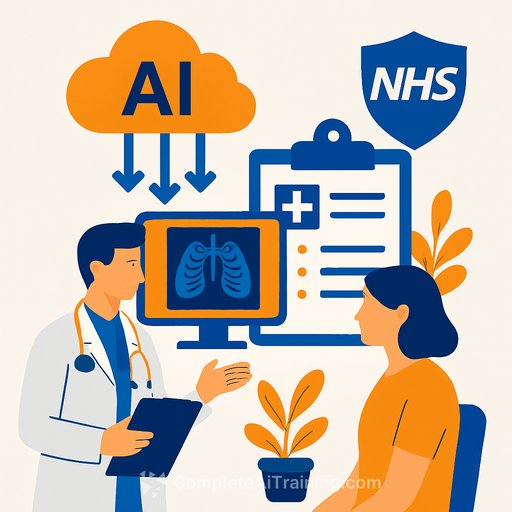AI screening trials to scale across the NHS with new cloud platform
The NHS is building a national AI Research Screening Platform (AIR-SP) to speed up diagnosis and reduce setup time for multi-site AI trials. Backed by nearly £6 million, the platform will connect NHS trusts through a single, secure cloud environment that hosts multiple AI tools for imaging-based screening.
Today, 90% of AI tools are stuck in pilots because each trust must create temporary IT setups and repeat testing from scratch. AIR-SP replaces this with a unified approach, cutting duplication, compressing timelines, and enabling consistent research at scale.
What AIR-SP delivers
- A single, secure cloud environment hosting multiple AI tools for screening research.
- Standardised, safe connections to all NHS trusts to share images and results for research.
- Faster study setup and reduced dependency on one-off local IT builds.
- A route to evaluate AI in real NHS settings and accelerate evidence generation.
Why this matters for government leaders
- Patient impact: faster analysis of screening images and earlier referrals where needed.
- Productivity: less duplication across trusts and more consistent national evaluation.
- Value for money: current multi-trust IT can cost up to £3.5 million per study; AIR-SP is expected to save £2-3 million per multi-site study.
- Policy delivery: supports the Plan for Change by moving from analogue to digital infrastructure.
Key facts and timelines
- Funding: nearly £6 million.
- Build time: approximately two years; research rollout expected in 2027.
- First use case: an NIHR-funded breast screening trial involving almost 700,000 women, assessing AI tools to flag potential signs of cancer.
- Scope: enables multiple AI products to be tested simultaneously across any participating trust.
What leaders across health said
- Wes Streeting, Secretary of State for Health and Social Care, highlighted that the platform will get new AI tools into nationwide research trials quickly, helping staff deliver faster care and supporting the UK's tech strengths.
- Dr Kevin Dunbar (NHS) said the cloud approach will accelerate research into AI for screening and improve both patient care and productivity.
- Professor Lucy Chappell (DHSC/NIHR) emphasised the need for digital infrastructure that enables rigorous, real-world evaluation of AI at speed and scale.
- Dr Layla McCay (NHS Confederation) noted the platform can reduce duplication across sites and help deliver a fully digitised service.
- Simon Vincent (Breast Cancer Now) welcomed a single shared system that could improve early detection and make screening more effective.
Operational considerations for trusts and ICSs
- Information governance and data flows: map image sharing, consent pathways, DPIAs, and Caldicott approvals for research use.
- Security and connectivity: ensure secure cloud connectivity and alignment with NHS cyber standards and local network policies.
- Clinical safety and evaluation: prepare DCB 0129/0160 processes, standard operating procedures, and outcome measurement plans.
- Interoperability: plan integration with PACS/RIS and local imaging workflows to minimise disruption.
- Workforce readiness: train radiology and screening staff on AI-assisted workflows and escalation protocols.
- Procurement and vendor management: streamline onboarding using national templates to reduce duplication and timelines.
Related NHS innovation activity
- AI tools that reduce administrative workload, including note-taking assistants, are being deployed to free up staff time.
- A national AI early warning system is in development to help identify safety concerns.
- Regulatory streamlining is enabling access to new non-invasive liver cancer treatments.
What to do next
- Nominate local leads across digital, imaging, R&D, and IG to prepare for AIR-SP participation.
- Audit data readiness, connectivity, and clinical safety processes for multi-site research.
- Engage early with national teams on study selection, metrics, and workforce training needs.
For programme context and upcoming resources, see the NHS England AI Lab here, and NIHR research guidance here.
If you are planning workforce upskilling for AI-enabled services, explore role-based learning options at Complete AI Training here.
Your membership also unlocks:






